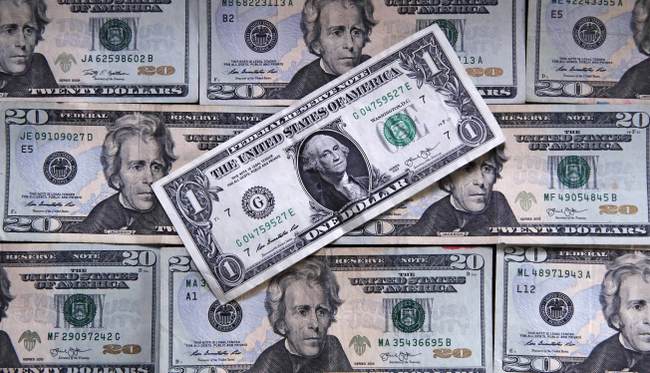
Here’s a bit of Sunday afternoon musing: A perfect society is only possible if you have perfect people. I’m certainly not perfect; as the Old Man was fond of saying, “perfection is a fault, and I don’t have any.” But all kidding aside, in economics, as in so many other things, we can’t have Utopia. We shouldn’t try. Every such attempt ends up with some people telling other people what to do, usually for their own good, or so they claim. As C.S. Lewis wrote:
“Of all tyrannies, a tyranny sincerely exercised for the good of its victims may be the most oppressive. It would be better to live under robber barons than under omnipotent moral busybodies. The robber baron’s cruelty may sometimes sleep, his cupidity may at some point be satiated; but those who torment us for our own good will torment us without end for they do so with the approval of their own conscience.”
So, in matters of economics, we are left with the best possible economic system: Capitalism. I don’t mean the semi-capitalism that we find in much of the developed world today; even the United States has only an attenuated form. I would prefer to see a complete laissez-faire version, but for now, we have what we have, and you know, it still works reasonably well.
In a free market, people are free to trade with one another, value for value, making their own decisions, using their own time, abilities, skills, and benefits to their own best interests. And the other great thing about capitalism is the profit motive and how it drives innovation. There’s a 2018 article from the Foundation of Economic Education that I trot out whenever the subject comes up in debate, and it still applies; specifically, on the topic of a life-changing innovation: Modern refrigeration.
In 1919, the Frigidaire was the first self-contained refrigerator. It cost $775 (over $11,000 in today’s money). As the average hourly wage in 1919 was just $0.43, it took the average American 1,802 hours of work to afford this luxury appliance. The Frigidaire was a marvel back in its day but had only five cubic feet of storage. As such, it would be classed as a “mini-fridge” today.
Today, the standard Whirlpool French door refrigerator holds 25 cubic feet’s worth of food and drink. It has “fingerprint resistant stainless steel” and costs just $1,529. According to the latest BLS statistics, it would take the average American just 57.5 hours of work to be able to afford this – now common – appliance. (The average wage today is $26.55 per hour.) Even as the price of refrigerators decreased, refrigerator quality increased.
Here’s another example: Walmart. Up to the early ’90s, if memory serves, the Old Man had to buy tools, construction stuff, and housewares from the old Coast to Coast store in Decorah, Iowa, the nearest town of any size to his old homestead. He once told me of buying a toaster-oven from that store for $65, a year or so before the massive Walmart supercenter opened on the edge of town. At first, the Old Man didn’t care for the Walmart, thinking (correctly) that it would put some small locally owned stores out of business. It did. The Coast to Coast went under, and the owner retired. The Old Man was a convert, though, when next he needed a toaster-oven, and was able to buy one at Walmart for $25. And the one he bought wouldn’t have been Chinese junk; the Old Man was a staunch “Buy American” type.
You can, of course, apply the same historical example to microwave ovens, cellular phones, televisions, and many more consumer items. Why? Innovation, free markets, and the profit motive.
That big store in Decorah made everyone in the area’s dollars go a little farther. That’s how things work. The business model that’s the most efficient, that provides goods and services that people want at the best price point, will be the one that wins.
Markets, given time, usually get things right. No person or body of people could ever hope to “manage” the tens of billions of individual daily decisions that make up a national economy; only the people, freely deciding for themselves what they want to do with their money, their time, their talents and abilities, can properly make up an economy. And that’s the only way an economy should exist: free people making their own decisions freely.
Free societies are and always will be wealthier than authoritarian ones, and those free societies are and always will offer greater opportunity, as long as the individual is willing to take some personal responsibility for their own success.
See Also: Amazon in Space As Retail Giant Launches Satellites
WATCH: Has-Been Howard Dean Spews Nonsense About Capitalism in Most Ignorant Way Possible
Here’s the thing about capitalism – real, free market, non-crony capitalism – it works every time it’s tried. Why? Because the very name is a misnomer. There is no “-ism” in honest capitalism. There is no underlying philosophy other than liberty; there is no dogma, no set of underlying principles other than leaving people alone. Capitalism in the pure form is nothing more than millions of people making up their minds, free of outside pressure, as to how to manage their talents, skills, and resources and when and with whom to engage in voluntary trade. Capitalism is free people dealing with each other voluntarily in free markets. In a word: Liberty.
We need more of this. Not less.
Help RedState continue to tell the truth about the Trump administration’s accomplishments as we continue to usher in the Golden Era of America. Join RedState’s VIP and use promo code FIGHT to get 60% off your membership today.
















